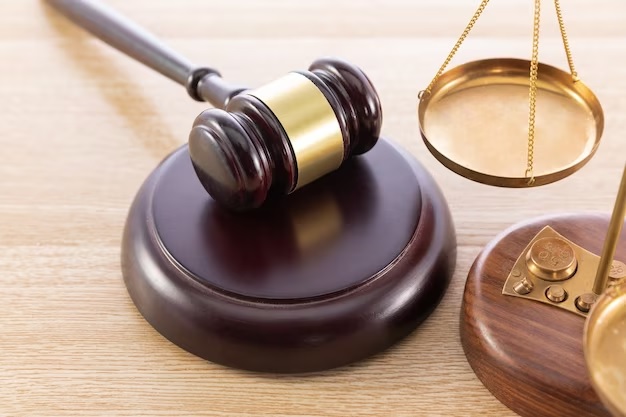Introduction
Human rights, a cornerstone of modern civilization, serve as the bedrock for ensuring the dignity and well-being of individuals across the globe. In the intricate tapestry of safeguarding these rights, human rights lawyers emerge as the legal guardians of humanity.
This article delves into the indispensable role played by human rights lawyers, exploring their functions, challenges, and impact on shaping a more just and equitable world.
Understanding Human Rights Law
Defining Human Rights
Human rights encompass a set of fundamental freedoms, liberties, and entitlements inherent to all individuals, irrespective of nationality, ethnicity, or social status. These rights, often enshrined in international treaties and declarations, serve as a moral compass for societies and nations.
The Role of International Instruments
International instruments such as the Universal Declaration of Human Rights (UDHR) and various conventions underpin the global framework for human rights.
Lawyers navigate these intricate legal landscapes to advocate for the protection and promotion of these rights on both national and international fronts.
The Crucial Functions of Human Rights Lawyers
Legal Advocacy
Lawyers play a pivotal role in legal advocacy, representing individuals or groups whose rights have been violated. This involves engaging in litigation, filing cases, and presenting arguments before domestic and international courts.
The defense provided by Menneskerettighetsadvokat is instrumental in ensuring that those facing accusations or violations receive justice and the rights of their clients are safeguarded.
Legislative Advocacy
Beyond the courtroom, human rights lawyers engage in legislative advocacy, influencing the creation and reform of laws to align with human rights principles. They work to ensure that legal frameworks adequately protect and respect the rights of individuals.
Education and Awareness
Human rights lawyers serve as educators, spreading awareness about human rights and the legal avenues available to those who have faced violations. This educational aspect is crucial in fostering a culture of respect for human rights.
Research and Documentation
In the pursuit of justice, Lawyers conduct extensive research to gather evidence, document violations, and build strong cases. This meticulous groundwork is essential for presenting compelling arguments in legal proceedings.
The Challenges Faced by Human Rights Lawyers
Threats and Intimidation
Engaging in human rights advocacy often exposes lawyers to threats and intimidation from both state and non-state actors. The nature of their work makes them susceptible to backlash, putting their personal safety at risk.
Limited Resources
Human rights organizations and lawyers frequently operate with limited resources, hindering their ability to take on cases or provide legal assistance. This resource constraint can impede the pursuit of justice for marginalized and vulnerable communities.
Legal and Political Obstacles
Navigating complex legal systems and facing political obstacles pose significant challenges for human rights lawyers. In some instances, oppressive regimes may enact laws that restrict the activities of these lawyers, hindering their ability to effectively advocate for justice.
Impact on Social Justice
Setting Precedents
Landmark cases led by human rights lawyers often set legal precedents, influencing future judgments and shaping the interpretation of human rights law. These cases contribute to the evolution of legal norms that better protect individuals from rights violations.
Empowering Marginalized Communities
Human rights lawyers play a transformative role in empowering marginalized communities by providing legal representation and advocating for their rights. This empowerment extends beyond legal victories, fostering a sense of agency and resilience within these communities.
Holding Perpetrators Accountable
One of the primary functions of human rights lawyers is holding perpetrators of human rights abuses accountable. This accountability serves as a deterrent, discouraging future violations and promoting a culture of respect for human rights.
International Collaboration and Solidarity
Collaborative Networks
Lawyers often collaborate across borders, forming international networks to share knowledge, resources, and strategies. This collaborative approach enhances their collective impact and strengthens the global movement for human rights.
Solidarity in the Face of Repression
Facing repression and hostility, Lawyers find solidarity in their shared commitment to justice. International support and collaboration become crucial when lawyers and activists are targeted for their advocacy work.
The Evolving Landscape: Emerging Issues and Trends
Technology and Human Rights
As technology advances, human rights lawyers grapple with emerging challenges related to digital rights, privacy, and surveillance. The intersection of technology and human rights requires innovative legal strategies to address new forms of violations.
Environmental Justice
Human rights lawyers are increasingly involved in environmental justice issues, recognizing the interconnectedness between a healthy environment and the realization of fundamental human rights.
Cases related to climate change, pollution, and environmental degradation are becoming prominent in their portfolios.
Refugee and Migration Rights
With global migration patterns on the rise, Lawyers are at the forefront of advocating for the rights of refugees and migrants. This includes addressing issues such as asylum, detention conditions, and protection from discrimination.
The Future of Human Rights Lawyering
Empowering the Next Generation
Ensuring the continuity of human rights advocacy requires the mentorship and empowerment of the next generation of lawyers. Educational programs, internships, and mentorship initiatives play a crucial role in nurturing a new cadre of human rights defenders.
Adapting to Changing Realities
Lawyers must adapt to the evolving realities of the world. This includes staying abreast of technological advancements, understanding the implications of global crises, and developing strategies to address emerging human rights challenges.
Advocacy for Systemic Change
While addressing individual cases is vital, human rights lawyers also advocate for systemic change. This involves challenging unjust laws, advocating for policy reforms, and working towards a more just and equitable legal and political system.
Conclusion
Human rights lawyers stand as the legal guardians of humanity, dedicating their skills and passion to the pursuit of justice. In the face of challenges, they remain steadfast in their commitment to upholding the principles of human rights.
As we look towards the future, the role of Lawyers becomes even more critical in shaping a world where justice, equality, and dignity are not just ideals but realities for all.
Also Read About:
